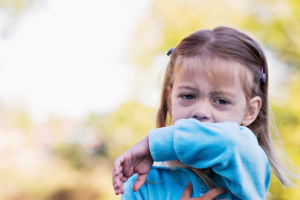
Most people expect to get sick during the flu season and in cold winter months, but Kent County Health Department officials say enterovirus is making its way across the state this summer.
Enteroviruses are common viruses (there are more than 100 strains) that can spread easily from one person to the next. There are no vaccines for preventing infections.
Infants, children and teens tend to be more affected than adults. The elderly can also be more affected if they suffer from an immune deficiency.
Symptoms are similar to the common cold, usually relatively mild, and not a cause for concern.
According to Rosemary Olivero, MD, an infectious disease specialist with Spectrum Health Helen DeVos Children’s Hospital, most affected children do not need to be seen in an emergency department and do not require hospitalization unless they have difficulty breathing or persistent fever, lethargy and dehydration.
However, children with asthma or other chronic lung diseases, including cystic fibrosis, should be especially cautious of enterovirus infection.
“These kids are at risk for severe symptoms and respiratory distress,” Dr. Olivero said. “Parents and children need to be diligent about using their asthma action plans and notify their doctor if they’re using their rescue inhaler more frequently than prescribed or if they’re struggling to breathe in any way.”
The Centers for Disease Control and Prevention noted that cases of enterovirus stayed relatively low for decades. But last year, more than a thousand people in 49 states were diagnosed. CDC experts believe millions of cases went undetected since not everyone sees a doctor for their symptoms.
Dr. Olivero indicated that she and her team have seen more than 10 times the number of enterovirus respiratory infections this year compared to last year. She also noted that the number of cases has been steady since April with no observable uptick in recent weeks.
Here’s what you need to know about enterovirus:
Prevention
- Wash hands often with soap and water for 20 seconds, especially after changing diapers
- Avoid touching eyes, nose and mouth with unwashed hands
- Avoid kissing, hugging and sharing cups or eating utensils with people who are sick
- Disinfect frequently touched surfaces, such as toys and doorknobs, especially if someone is sick
- Stay home from school and work when sick to avoid spreading the virus
Symptoms
- Mild to severe respiratory illness, including wheezing, difficulty breathing, hypoxia, fever and racing heart rate
Treatment
- Most infections require only treatment of the symptoms (control of fever, oral hydration)
- People with severe respiratory illness may need to be hospitalized
 /a>
/a>
 /a>
/a>
 /a>
/a>